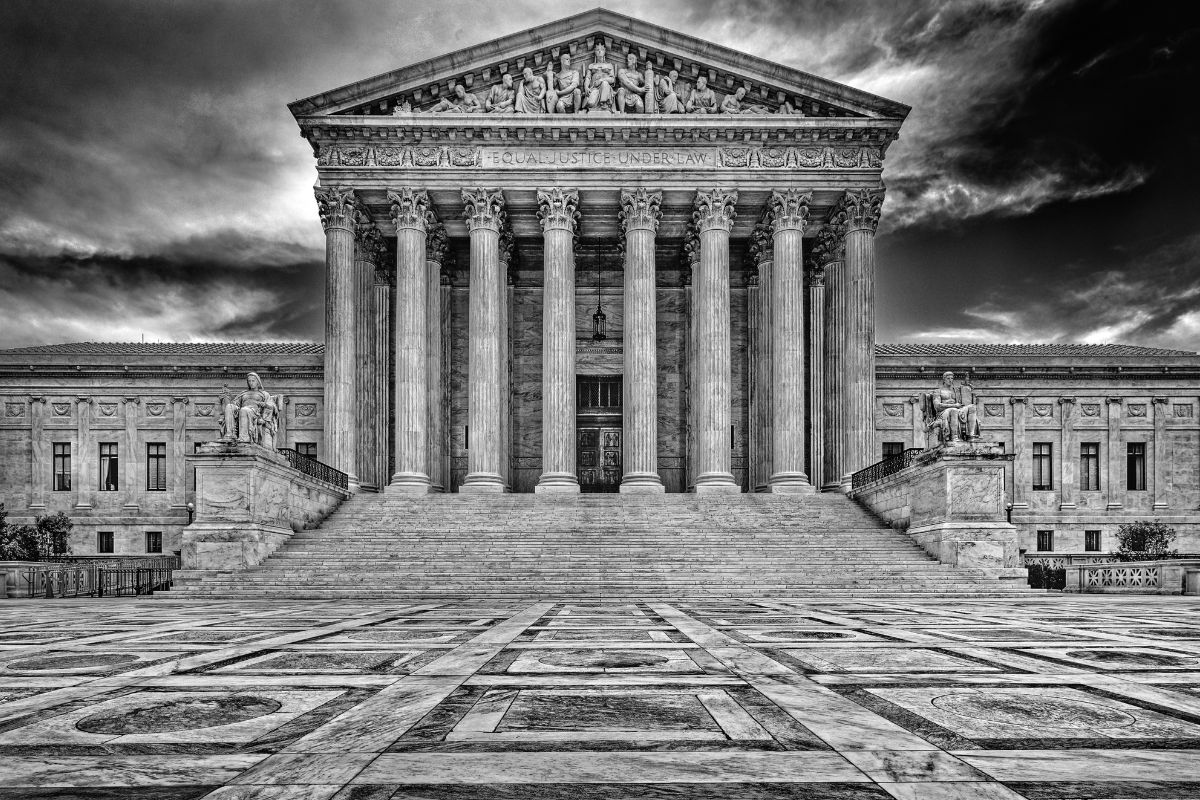Domestic Abusers Can Still Be Denied Guns under Supreme Court Ruling
In December 2019, Zackey Rahimi verbally threatened and had a violent altercation with C.M., his girlfriend, with whom he had a young child with. During the altercation, Rahimi dragged C.M. from a restaurant, shoved her into his car causing her head to hit the dashboard. Rahimi then reached for a gun when he realized that a bystander was watching the assault. C.M. managed to get away while Rahimi was distracted.
C.M. filed for a restraining order against Rahimi. The trial court granted the restraining order, finding that Rahimi had “committed family violence” and that such violence was likely to repeat in the future. The restraining order was for a two-year period, during which Rahimi would be legally barred from possessing a firearm.
In May 2020, Rahimi violated the restraining order by approaching C.M.’s home at night. He also began contacting her through several social media accounts. In November 2020, Rahimi threatened another woman with his gun, resulting in a charge for aggravated assault with a deadly weapon. While Rahimi was under arrest for this subsequent assault, the Texas police identified him as the suspect in at least five additional shootings, including several drive by shootings.
Rahimi has since challenged the restraining order and the underlying law removing his firearms, claiming that it violated his right to bear arms. The Fifth Circuit initially denied Rahimi’s appeal, but reversed itself and issued a new order upholding Rahimi’s right to his firearms after the Supreme Court ruled in 2022 that firearms can only be restricted if the prosecution can show that the restriction “is consistent with the Nation’s historical tradition of firearm regulation.” Prosecutors appealed the 5th Circuit ruling to the United States Supreme Court.
The Supreme Court subsequently ruled that when an individual has been found by a court to pose a credible threat to the physical safety of another, that individual may be temporarily disarmed consistent with the Second Amendment.
 Civil Asset Forfeiture v. Restraining Orders
Civil Asset Forfeiture v. Restraining Orders
Justice Thomas dissents from the majority of the 8-1 Supreme Court decision because he does not believe that the underlying statute provides due process before it strips Americans like Rahimi of firearms without trial or due process. Over the last several years, there has been a major problem with law enforcement using civil asset forfeiture to seize the property of innocent Americans. However, there is a vast difference between a restraining order temporarily removing a suspect’s guns and the police using civil asset forfeiture to take cash, cars, or even a house from their rightful owners.
Civil asset forfeiture is leading to absurd results. In 2018, Philadelphia police attempted to seize a house because the defendant was charged with selling $40 worth of drugs. The defendant didn’t even own the house – his aunt did. However, the police still attempted to sell the house at auction over the double digit drug profits. The sales generated from civil asset forfeiture is most likely permanent as law enforcement often seeks to sell the property as quickly as possible to make a fast buck.
In contrast, Rahimi and violent suspects like him are only deprived of their guns, the very tools which they use to instill terror in their communities. However, once the restraining order ends, the expectation is that the gun(s) will be returned to their owners. Moreover, the restraining order is often requested by family members or at least dating partners, people who may actually fear for their physical safety following a potential life or death situation. Police officers engaging in civil asset forfeiture usually do not face this same level of threat, especially since the officers are themselves armed.
The government’s foremost responsibility is to protect people. Trial judges should have the power to remove firearms from a suspect prior to trial if a brief hearing is held beforehand and the guns can be returned if the suspect is found not guilty.
Do I Need a Lawyer to File a Divorce?
If you are going through a divorce or are considering filing for divorce, work with a skilled and knowledgeable divorce lawyer who can provide valuable guidance and representation throughout the process. A good divorce lawyer can help you protect your legal rights and interests, negotiate a fair settlement, and ensure that your case is handled efficiently and effectively.


Comments